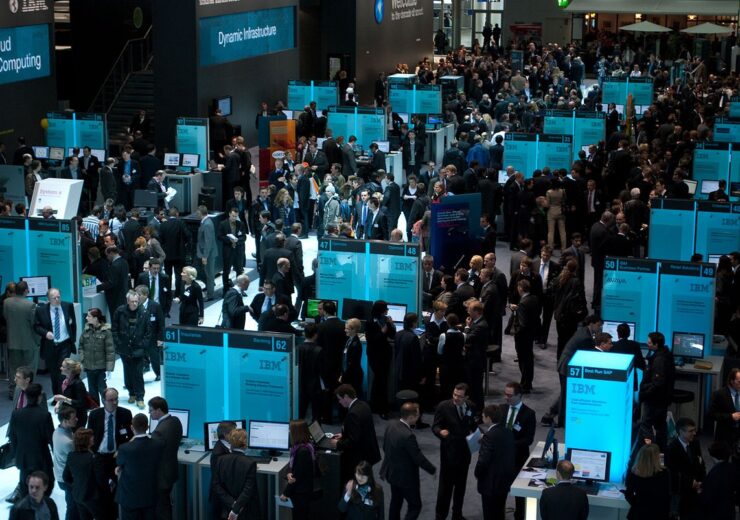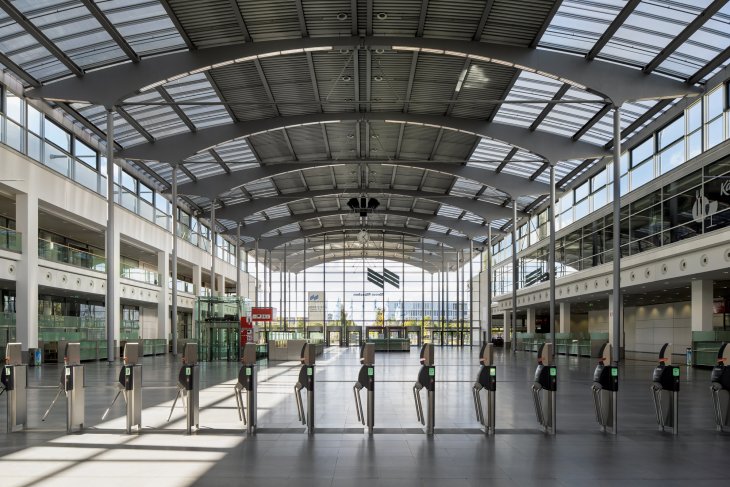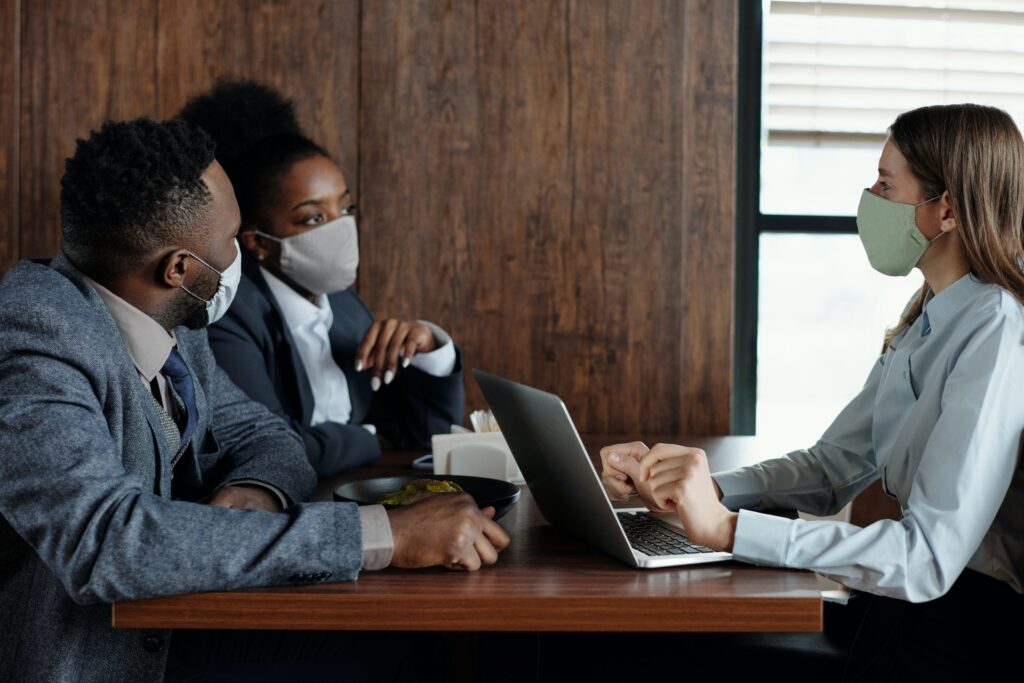Messe München has worked with other trade fair companies in Germany to develop a strategy centered around social distancing, hygiene and contact tracing

Trade fairs will be permitted in Bavaria from the start of September 2020 (Credit: Patrick - IBM/Flickr)
Throughout much of 2020, the vast majority of organised public gatherings have been cancelled or postponed indefinitely due to the Covid-19 pandemic – but companies that run trade fairs in Germany are attempting to overcome this with a newly devised “hygiene concept”.
While many large events – including festivals, music concerts and major sporting events – are still banned until at least the end of October in Germany, trade fairs will be allowed to go ahead starting in September, provided certain Covid-related health and safety regulations are observed.
Munich-based firm Messe München has collaborated with a number of other Bavarian trade fair companies to develop this hygiene concept, which is centered around three key areas: social distancing, hygiene and contact tracing.
In a statement, Messe München announced it had worked closely with health experts to devise this strategy, which was ratified by the Bavarian state government on 23 June.
With German trade fairs set to resume shortly – and medical technology fairs like MedtecLIVE in Nuremberg already scheduled for next year – we take a closer look at the hygiene concept Messe München will use to make its own events as low-risk as possible.

Hygiene concept for trade fairs in Germany
Social distancing
The first and – according to Messe München – most important component of its hygiene concept is the 1.5-metre social distancing rule between all participants at an event.
Where this distance cannot be observed or enforced, a face covering will be made mandatory. Face masks that cover the mouth and nose should also be worn indoors.
Messe München previously indicated that if infection rates continued to drop across the country, participants would be allowed to remove their masks while at exhibition stands and tables.
However, with the number of Covid-19 cases in Germany increasing slightly throughout much of August, it’s unclear whether this will be permitted next month.
Another part of the social distancing strategy involves admission controls at the entrance to event venues, meaning organisers will know how many people are on-site at all times, and requirements imposed by local authorities regarding the number of participants can be met.
In areas where visitors may have to congregate in a line – such as entrance areas or cloakrooms – floor markings will also be used to ensure the 1.5-metre rule is adhered to.
Alongside this, event employees will receive infection protection training.
Access control and suitable seating are among the measures that will be used to enforce the 1.5-metre rule in forum and conference areas of the venue.
Hygiene
Under the current plan, all those attending trade fairs will have to wear a mask that covers the nose and mouth in all indoor areas – regardless of whether the minimum distance rule can be adhered to.
In outdoor areas, however, face coverings will only be mandatory when this rule can’t be kept.
Exhibitors are also required to maintain the hygiene levels at their own stands.
This includes naming a person present at the stand as a contact for ensuring compliance and disinfection of useful areas.

Sanitary facilities will also be provided to participants, including handwashing stations and disinfection dispensers at key locations.
Surfaces that are touched more regularly – such as counters, tables and handrails – will be cleaned even more often, and the majority of the doors on-site will be kept open to reduce surface contact.
Ventilation is also listed as an important component of these hygiene protocols – and Messe München says its own exhibition halls and the International Congress Center Munich (ICM) are equipped with modern ventilation systems that introduce the highest possible proportion of fresh air, and the lowest possible proportion of circulating air.
Contact tracing
By purchasing a ticket online prior to the event – or using an exhibitor or service partner pass – participants will have registered for Messe München’s contact tracing system, allowing it to identify people quickly in the event of a Covid infection.
This means the venue and the fair’s organisers can guarantee traceability for all participants.
Exhibitors are being asked to record people’s contact details at their own stands to help with traceability.
This can be done by manually using business cards or a written list, with a digital registration tool of their own, or with one of the free tracking solutions made available to exhibitors by Messe München.
As part of the hygiene concept, those attending are also asked to inform themselves of the relevant entry and quarantine regulations – if entering from a “risk area” – before arriving at the venue.
Anyone who has been in contact with somebody with Covid-19 in the 14 days prior to the event or has symptoms of the virus like a dry cough, fever, or sickness is advised not to attend.
